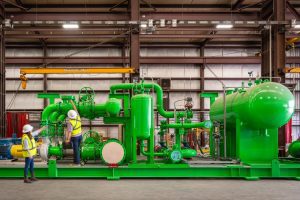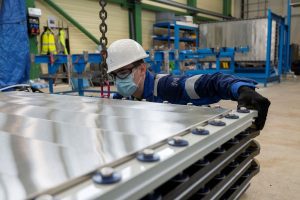Pemion™ is intended for use in large fuel cell applications, including heavy-duty transport, automotive, and stationary power, offering superior chemical and mechanical stability, conductivity, durability, and efficiency, all of which serve to dramatically reduce the unit cost of the fuel cell.
According to the company, its latest product is environmentally friendlier than conventional fluorinated membrane and polymer technology, decreasing reliance on these increasingly regulated materials, and enables simplified and lower-cost recycling for the recovery of expensive catalysts at end of life.
Unlike PFSA materials, hydrocarbon-based Pemion™ polymers are chemically stable up to 200°C, enabling a development platform for other fuel cell components to address industry operating targets of 120°C.
Bill Haberlin, CEO of Ionomr, said: “Governments and regulators across Europe, in the U.S., indeed around the world, are rightly calling for the elimination of toxic, perfluorinated materials. Pemion™ is an ideal replacement for conventional materials, for its environmental benefits and for its superior performance. With our Pemion™ materials now produced at scale, our partners can take their fuel cell and other clean energy technologies to market faster, cleaner, and with better performance. Pemion™ provides a tangible differentiation in the heavy-duty market.”
The commercial release of Pemion™ follows Ionomr’s earlier release of its Aemion+™ membrane technology for industrial-scale green hydrogen production by water electrolysis. Aemion+™ alkaline membranes are ultra-stable anion exchange membranes (AEMs) designed to eliminate the traditional expensive components for water electrolysis such as iridium, platinum and titanium, replacing these with less expensive materials while maximizing performance. The company is now undertaking joint development activities for AEM electrolysis with Shell and Nouryon and has signed six more MoUs with equipment manufacturers to accelerate the rollout of commercial equipment.






